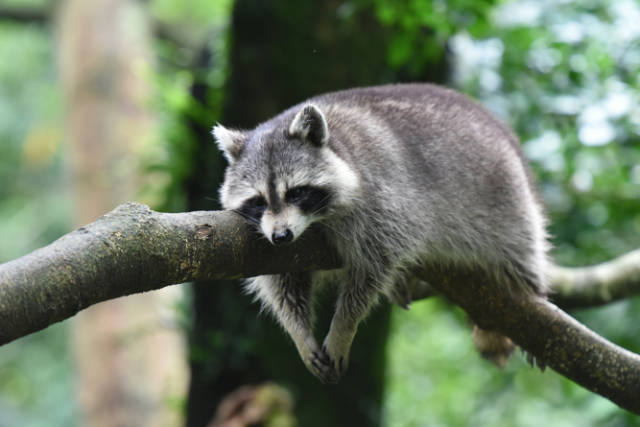
When you find a group of cute baby raccoons, you might feel both amazed and worried. Even though they are cute and might make us want to help, it is important to remember that raccoons are wild animals, and touching them without knowing how can hurt them. In this helpful guide, we’ll talk about what to do when you find baby raccoons, with an emphasis on taking responsible steps that put their safety and survival first while still following their natural instincts.
Observe from afar: figuring out what’s going on
If you come across baby raccoons, avoid the urge to touch them right away. Instead, keep a safe distance and watch the area to see if the mother is close. Raccoon mothers often leave their young alone for short amounts of time while they look for food. Before you do anything, you must give the mother a chance to come back.
Check to see if the babies are in danger right away.
Check out the baby raccoons from a distance to see how they are doing. If they look like they are in trouble, hurt, or alone, you may need to help. But know that you shouldn’t touch them unless you have to.
Contact your local wildlife authorities: Get help from a professional
If the baby raccoons are in immediate danger or seem to be alone, call your local wildlife officials or a licensed wildlife rehabilitation center. Professionals who have been trained know how to deal with wildlife in a safe and responsible way.
Don’t try to raise them; don’t talk to people.
Raising baby raccoons is a difficult job that requires special training and a permit. Trying to raise them as pets is against the law in many places and can be very bad for the raccoons’ health.
Getting back together with Mom: The Best Result
Most of the time, the best thing that can happen to a baby raccoon is for it to be reunited with its mother. If you think the kids are safe and the mother is likely to come back, it’s best to leave them alone and let the mother take care of them on her own.
Make a safe space: Keep your distance
If you’ve seen a mother raccoon nearby, don’t get too close and don’t bother her. Raccoons are very protective of their young, and if you get too close, they might get stressed out or act aggressively.
Be careful: If it’s necessary
If wildlife experts have told you it’s safe to handle the baby raccoons, be sure to do as they say. Wear gloves and be very careful when handling them so you don’t give off human smells or hurt them by accident.
Stay informed: Learn about the wildlife laws in your area.
Find out what the laws and rules are in your area about wildlife. In some places, it is against the law to touch or own wild animals without the right paperwork. If you know the rules, you can make sure you deal with baby raccoons in a way that is legal and right.
Meeting baby raccoons is a great experience, but it also means you have to make choices that are well-informed and responsible. Watching from a distance, figuring out what’s going on, and calling the local wildlife authorities are all important ways to make sure these wild animals are safe. When it’s possible, it’s best to let mother raccoons take care of their young on their own. Understanding local wildlife rules and giving raccoons space to do what they want to do are important parts of living with these smart and curious animals. We can help protect wildlife and their natural habitats by putting the safety and success of baby raccoons first and staying out of their way when we don’t have to.
